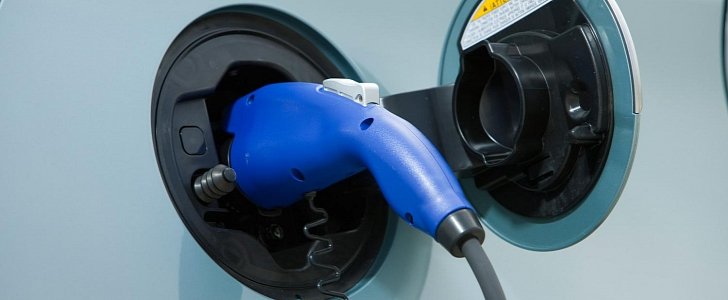Last summer, an article made its way across the Globe, saying that Norway wanted to ban diesel and gasoline-engined vehicles by 2025.
It was an incorrect understanding of discussions in the country’s parliament, which was denied by government officials. Several months later, a new report from Norway has come to explain the country’s vision on eco-friendly automobiles. Instead of a ban, which would be too strict, Norway is considering a “polluter pays” tax system.
The Norwegian Electric Vehicle Association published an article on its website, Elbil, where it explained how the Government had favored the acquisition of eco-friendly vehicles in the past two and a half decades. Now, the country has a new target for the future, which involves all of its new cars sold in 2025 to be low emission and zero emission vehicles.
Evidently, like many goals of this kind, it is excessively optimistic, but it marks the intention to change something about how things work. The government is aware that an absolute ban on the sale of new cars with gasoline or diesel engines, even in 2025, would be too much, but “the right policy measures” could make people do the switch to low emissions without the need for a ban.
The Norwegians want to have a green tax system that would continue to favor electric and hybrid vehicles, and the charging network for plug-in cars is set to get a massive hike by 2025.
Norway also has an effort ahead of itself, which is to meet the European Clean Power for Transport directive that recommends a charging point for every ten electric cars in the country.
That objective must be accomplished by 2020, and the state’s predicted total number of electric vehicles is estimated at 250,000 within the next three years.
With 250,000 electric vehicles on Norwegian roads by 2020, the country will have to increase its network of charging stations to 25,000 public points by that time.
According to Elbil, the country only had 1,350 public charging points in 2015 that complied with EU standards. Fortunately, the government already has a plan in place to finance the construction of “at least two” multi-standard fast-charging stations every 50 kilometers (31 miles) on all main roads in the country by the end of 2017.
The Norwegian Electric Vehicle Association published an article on its website, Elbil, where it explained how the Government had favored the acquisition of eco-friendly vehicles in the past two and a half decades. Now, the country has a new target for the future, which involves all of its new cars sold in 2025 to be low emission and zero emission vehicles.
Evidently, like many goals of this kind, it is excessively optimistic, but it marks the intention to change something about how things work. The government is aware that an absolute ban on the sale of new cars with gasoline or diesel engines, even in 2025, would be too much, but “the right policy measures” could make people do the switch to low emissions without the need for a ban.
The Norwegians want to have a green tax system that would continue to favor electric and hybrid vehicles, and the charging network for plug-in cars is set to get a massive hike by 2025.
Norway also has an effort ahead of itself, which is to meet the European Clean Power for Transport directive that recommends a charging point for every ten electric cars in the country.
That objective must be accomplished by 2020, and the state’s predicted total number of electric vehicles is estimated at 250,000 within the next three years.
With 250,000 electric vehicles on Norwegian roads by 2020, the country will have to increase its network of charging stations to 25,000 public points by that time.
According to Elbil, the country only had 1,350 public charging points in 2015 that complied with EU standards. Fortunately, the government already has a plan in place to finance the construction of “at least two” multi-standard fast-charging stations every 50 kilometers (31 miles) on all main roads in the country by the end of 2017.

